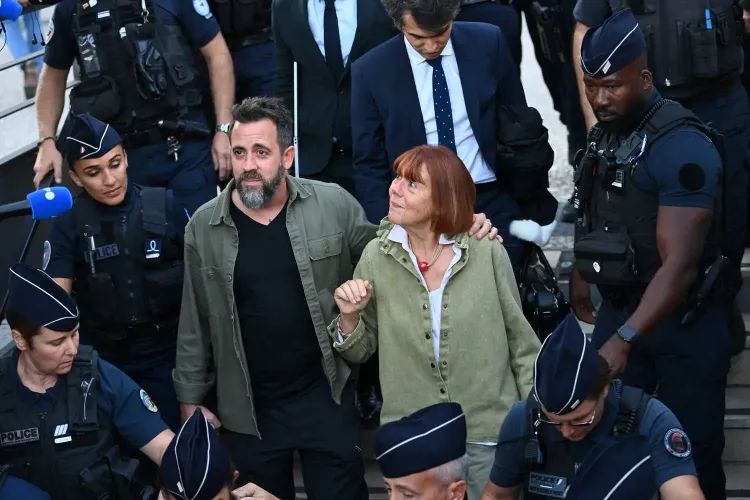The Last Defense Collapses: The Architect of Abuse Testifies Against the Final Appellant in the Gisèle Pelicot Case
The harrowing judicial saga of Gisèle Pelicot, who was secretly drugged and raped by dozens of strangers over almost a decade, has entered its final, dramatic phase with the appeal trial of Husamettin Dogan at the Nîmes Appeals Court. Dogan is the sole remaining individual contesting his rape conviction, and his defense rests entirely on a claim of ignorance: that he believed the victim was a consenting participant and that he never knew she was sedated.
Now, the one man who holds the ultimate key to the truth, the perpetrator himself, Dominique Pelicot, has delivered a devastating, definitive rebuttal to the court.
The Unwavering Truth from the Perpetrator
Dominique Pelicot, the architect of the systemic abuse, was transported from his high-security prison to testify as a witness against the man appealing his verdict. Pelicot, who is serving the maximum 20-year sentence for aggravated rape and chose not to appeal his own conviction, explicitly confirmed that Dogan was aware of the victim's incapacitated state "from the start."
Pelicot testified that he recruited Dogan, an unemployed builder, through an online chatroom specifically titled "against her knowledge." He relayed to the court the precise terms of the criminal exchange established during a phone call with the appellant: “I’m looking for someone to abuse my wife after I’ve put her to sleep without her knowledge.”
Pelicot asserted that the knowledge of the victim’s sedation was the central element of the shared criminal enterprise. He summarized the collective intent of the men he invited, stating unequivocally: “They all knew, they all came with the same intention... I always said she was sedated.”
This account directly and powerfully strips away the core of Dogan’s defense—that he thought the act was merely a "game" and that the charge of "rapist" was "too heavy for me to bear." Pelicot’s testimony confirms that the non-consensual nature of the act was the entire motive for the recruitment, making any claim of mistaken belief impossible.
The Architecture of a Decade of Abuse
The Nîmes appeal is the final judicial confrontation following the landmark trial in Avignon, which concluded in December. The original proceedings exposed a nine-year period, from 2011 to 2020, during which Dominique Pelicot systematically administered crushed sleeping tablets and anti-anxiety medication into Gisèle’s food to cause unconsciousness. Investigators identified at least 92 separate incidents of rape committed by 72 different men.
Pelicot meticulously filmed and filed the hundreds of images and videos, sometimes labeling the files "abuse," providing objective proof of premeditated criminal intent for all parties. His conviction, along with the conviction of 50 co-defendants, was a defining moment in French justice.
Dogan’s appeal is the last attempt to rationalize the crime by claiming that the husband’s permission was sufficient justification, a defense common among the co-defendants who tried to mitigate their guilt. However, the explicit evidence provided by Pelicot—the architect of the crime—establishes that the transaction was explicitly designed to bypass consent via chemical incapacitation.
The Fight for Consent
Gisèle Pelicot, who survived nearly a decade of continuous assault, has transformed into an international feminist hero after her courageous decision to waive her right to anonymity. Her primary objective was "to raise awareness for other victims" and to make "shame swap sides" from the victim to the rapist.
Her presence in the Nîmes courtroom, sitting calmly alongside her youngest son, is an essential act of continued resistance against the final attempt to minimize the crime. Her lawyer confirmed her singular purpose in attending: to ensure that the court understands that "a rape is a rape, that there is no such thing as a small rape.”
The Pelicot case has irrevocably propelled France’s national dialogue forward, exposing profound structural flaws in the country's force-centric definition of rape. Parliament is now actively debating adding a consent-based definition to the law, recognizing that the legal system must prioritize voluntary agreement over the victim's ability to physically resist.
Ultimately, Dominique Pelicot’s decisive testimony against the remaining appellant ensures that the overwhelming evidence of criminal intent—both his and the men he recruited—will define this case, cementing its status as a pivotal moment in the fight for sexual violence accountability and consent culture across Europe.
